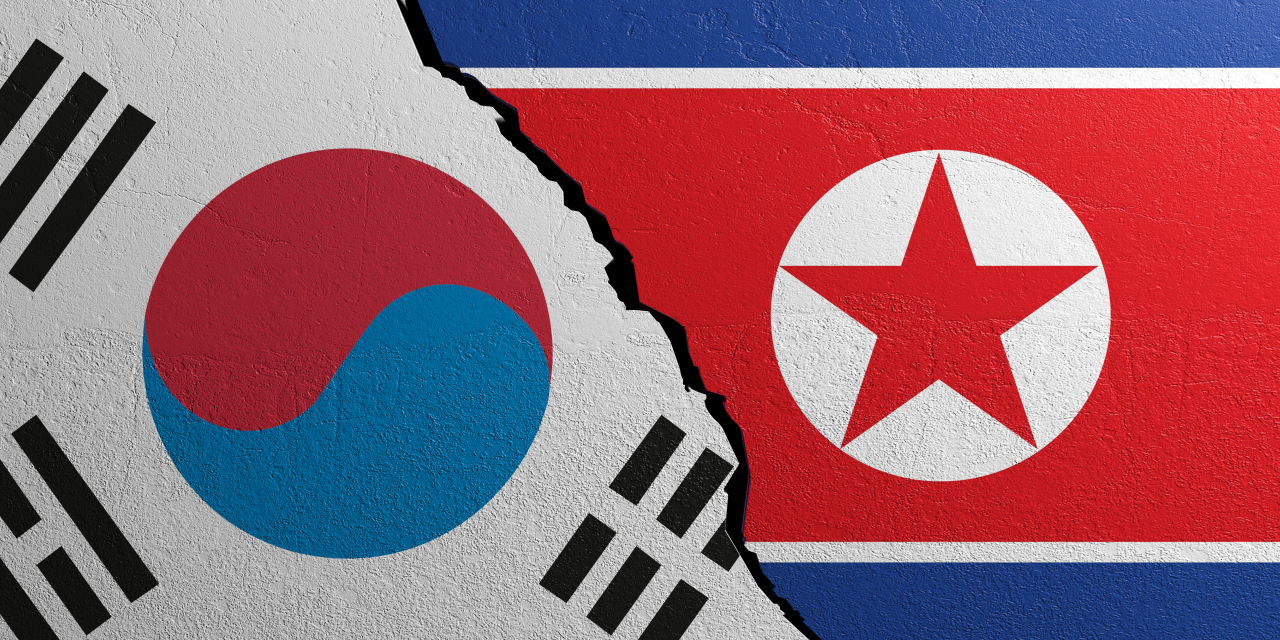 |
The flags of South Korea (left) and North Korea. (123rf) |
The majority of South Koreans favor a unified Korean Peninsula, but half of those prefer a model where the two Koreas remain separate, with each side able to freely cross the border, according to a survey released Friday.
In a poll conducted by the National Unification Advisory Council from June 9-11, 52 percent of 1,000 South Korean respondents aged 19 and older considered keeping the two Koreas separate while allowing free travel across the border the best way to reunite the peninsula, which remains divided following the 1950-53 Korean War. Only 28.5 percent of those surveyed approved of an entirely unified peninsula.
Asked whether the two Koreas need to reunite in the first place, 73.4 percent of the respondents said yes, according to the council, a presidential-led body that conducts the poll every quarter as part of efforts to prepare for reunification.
“Even among those who said yes to reunification, 48.6 percent of them want this two-country peninsula. … That’s a real change in the way South Koreans think about unification,” the council said.
Creating a bigger economy is the leading reason for unification, the survey noted, citing 30.9 percent of the respondents. Defusing risks of a potential war and restoring Korea’s homogeneity came next.
Almost 9 out of 10 respondents said that North Korea needs to address its human rights conditions and that the way to resolve the issue is to reopen inter-Korean dialogue, which has been suspended since 2019. The North still refuses to engage the South, demanding concessions from it and its biggest ally, the US.
According to the poll, the nuclear deal reached at the April summit between the two allies has bolstered Seoul’s capabilities to deter Pyongyang’s aggression. The Washington Declaration gives South Korea a bigger say in managing US nuclear assets to prevent a North Korean strike.
US President Joe Biden is hosting a three-way summit with the South Korean and Japanese leaders at the Camp David retreat on Friday, the first of its kind, to double down on the US-led coalition’s efforts for disarming North Korea.
The trilateral gathering is expected to deepen security links between Seoul and Tokyo, which since last year have improved ties marred by historical disputes over Japan’s 1910-45 colonial occupation of the peninsula.
Over 53 percent of the respondents said closer ties among the three countries would have positive effects on the political situation surrounding the Korean Peninsula.







![[Today’s K-pop] Blackpink’s Jennie, Lisa invited to Coachella as solo acts](http://res.heraldm.com/phpwas/restmb_idxmake.php?idx=644&simg=/content/image/2024/11/21/20241121050099_0.jpg)